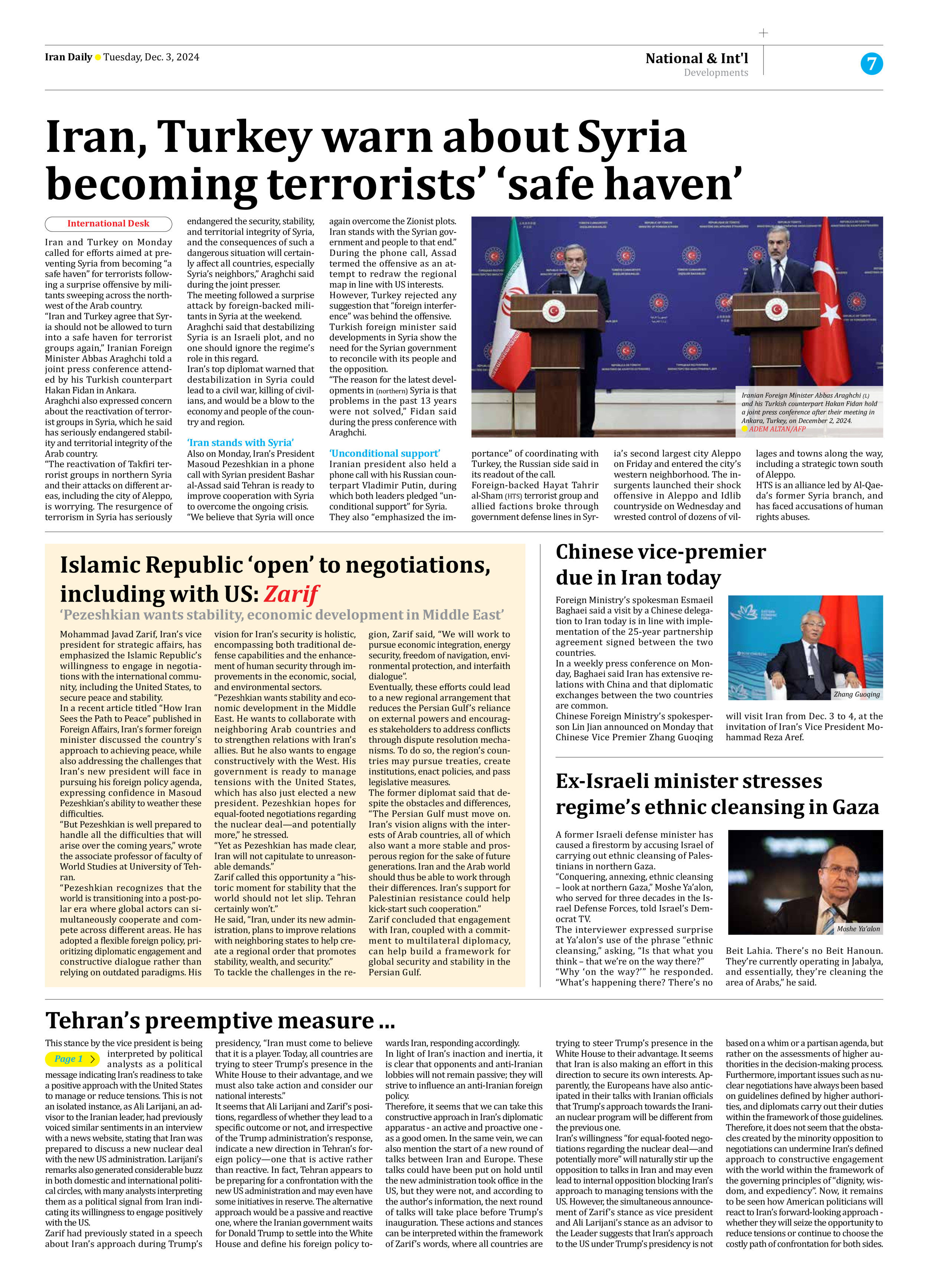
Copy in clipboard...
Islamic Republic ‘open’ to negotiations, including with US: Zarif
‘Pezeshkian wants stability, economic development in Middle East’
In a recent article titled “How Iran Sees the Path to Peace” published in Foreign Affairs, Iran’s former foreign minister discussed the country’s approach to achieving peace, while also addressing the challenges that Iran’s new president will face in pursuing his foreign policy agenda, expressing confidence in Masoud Pezeshkian’s ability to weather these difficulties.
“But Pezeshkian is well prepared to handle all the difficulties that will arise over the coming years,” wrote the associate professor of faculty of World Studies at University of Tehran.
“Pezeshkian recognizes that the world is transitioning into a post-polar era where global actors can simultaneously cooperate and compete across different areas. He has adopted a flexible foreign policy, prioritizing diplomatic engagement and constructive dialogue rather than relying on outdated paradigms. His vision for Iran’s security is holistic, encompassing both traditional defense capabilities and the enhancement of human security through improvements in the economic, social, and environmental sectors.
“Pezeshkian wants stability and economic development in the Middle East. He wants to collaborate with neighboring Arab countries and to strengthen relations with Iran’s allies. But he also wants to engage constructively with the West. His government is ready to manage tensions with the United States, which has also just elected a new president. Pezeshkian hopes for equal-footed negotiations regarding the nuclear deal—and potentially more,” he stressed.
“Yet as Pezeshkian has made clear, Iran will not capitulate to unreasonable demands.”
Zarif called this opportunity a “historic moment for stability that the world should not let slip. Tehran certainly won’t.”
He said, “Iran, under its new administration, plans to improve relations with neighboring states to help create a regional order that promotes stability, wealth, and security.”
To tackle the challenges in the region, Zarif said, “We will work to pursue economic integration, energy security, freedom of navigation, environmental protection, and interfaith dialogue”.
Eventually, these efforts could lead to a new regional arrangement that reduces the Persian Gulf’s reliance on external powers and encourages stakeholders to address conflicts through dispute resolution mechanisms. To do so, the region’s countries may pursue treaties, create institutions, enact policies, and pass legislative measures.
The former diplomat said that despite the obstacles and differences, “The Persian Gulf must move on. Iran’s vision aligns with the interests of Arab countries, all of which also want a more stable and prosperous region for the sake of future generations. Iran and the Arab world should thus be able to work through their differences. Iran’s support for Palestinian resistance could help kick-start such cooperation.”
Zarif concluded that engagement with Iran, coupled with a commitment to multilateral diplomacy, can help build a framework for global security and stability in the Persian Gulf.







